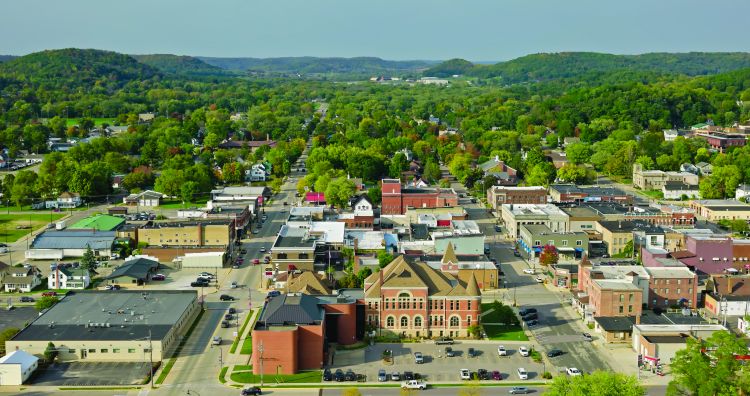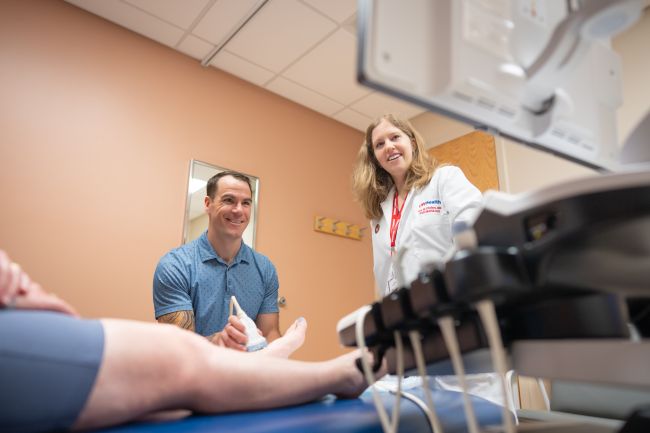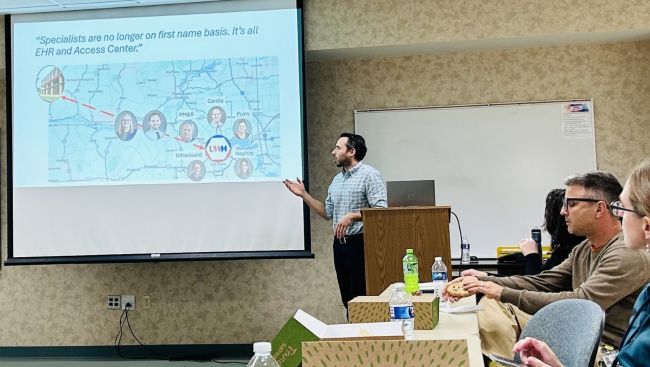Innovative training program expands rheumatology access in Richland Center
A partnership between rural physicians, Rheumatology faculty and the Orion Initiative

In rural communities like Richland Center, Wisconsin, patients often face months-long delays and long-distance travel for rheumatology services. But that may be changing.
A new collaborative training program is strengthening local expertise, improving patient access to care and building bridges between academic and rural physicians.
The program, STARS-R (Specialty Training at Rural Sites-Rheumatology), was co-designed by physicians at The Richland Hospital and Clinics (TRHC) and the Department of Medicine’s (DOM) Division of Rheumatology. Support came from the Orion Initiative at the University of Wisconsin School of Medicine and Public Health.
Immersive training builds autonomy
In April 2025, STARS-R kicked off monthly clinics in which two DOM Rheumatology faculty members—Christie Bartels, MD, MS, professor, and Justin Levinson, MD, MBA, assistant professor—taught TRHC’s family physicians skills for managing existing patients with rheumatologic conditions.
At first, Drs. Bartels and Levinson participated in those patient encounters onsite with TRHC physicians. Over time, TRHC physicians were able to lead the encounters with their “virtual” consultation.
By the program’s end, TRHC physicians were caring for patients independently and participating in remote case-based discussions enriched by their previous relationship-building experiences with the two physicians.
One TRHC physician, Brian Kroll, MD, completed an innovative “mini-fellowship” that offered advanced training in musculoskeletal ultrasound, a diagnostic tool typically reserved for rheumatology fellows.

With this training, Dr. Kroll can now perform joint assessments and injections for patients in his local community.
“I’ve seen the confidence [this program] has given my collaborating physicians and myself as a family doctor,” says Dr. Kroll.
“I now also have the fortunate ability to do ultrasounds to give more diagnostic clarity and even perform procedures to help patients get pain relief without waiting and suffering for months.”
Rounding out the program is a multidisciplinary in-person retreat in November 2025, where participants will come together for hands-on trainings and opportunities to deepen relationships with other UW academic physicians.
The Wisconsin Idea in action
STARS-R differs from traditional educational outreach models that offer limited interaction and no hands-on patient care experience.
Its goal is not just knowledge transfer, but transformation—creating a sustainable system where rural physicians can care for their patients with greater independence.
We are so grateful to share knowledge, co-design and improve the lives of people in Richland Center.
Dr. Christie Bartels
“STARS-R is truly a co-designed model,” explains Dr. Bartels. “Our rheumatology faculty and the rural Richland Center physicians evaluated specific clinical needs and logistical constraints, and addressed them with proven learning strategies.”

While improved access to specialty care is a primary benefit, early feedback also suggests that participating rural physicians feel more supported and engaged, and academic physicians value the meaningful collaboration and reduced referral overload.
“We are so grateful to share knowledge and improve the lives of people in Richland Center,” reflects Dr. Bartels. “This is truly the Wisconsin Idea in action.”
_
More about the Orion Initiative
The Orion Initiative is a new philanthropically funded initiative that invests in the transformative power of partnership between frontline rural providers and the academic medical community to improve health in rural communities. It has a number of STARS programs, including STARS-R, designed to improve rural health care access and build authentic rural-academic relationships to decrease the isolation of rural health delivery.